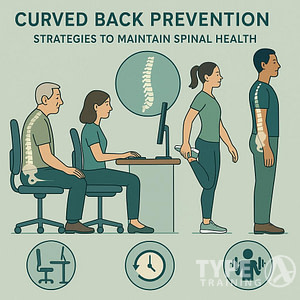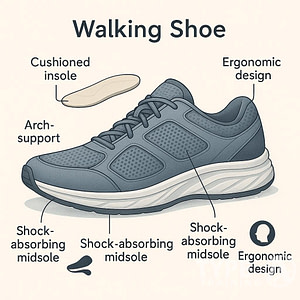The keto diet is popular for its potential for quick weight loss, but it also carries several side effects that you should be aware of before starting.
Keto flu is one of the most common short-term effects. It can cause symptoms like headaches, fatigue, and irritability as your body adjusts to a low-carbohydrate intake and enters ketosis.
Long-term adherence to the keto diet may lead to more serious issues, such as gastrointestinal problems like constipation, diarrhea, nausea, or vomiting. Additionally, the restrictive nature of this diet could result in nutrient deficiencies and possible heart disease risk.
Popular posts:
For those with pre-existing conditions involving the pancreas, liver, thyroid, or gallbladder, the keto diet may pose additional risks. It’s crucial to consider these potential side effects to make an informed decision about whether this diet aligns with your health goals.
Understanding Ketosis and the Keto Diet
Ketosis is a metabolic state that occurs when your body relies on fat rather than carbohydrates for energy. The keto diet aims to induce this state by significantly limiting carb intake.
The Role of Carbohydrates and Fat in Ketosis
Carbohydrates typically serve as your body’s primary energy source. However, when you reduce carb intake to around 20-50 grams per day, your body begins to burn fat for fuel.
This process produces ketones, which replace glucose as your body’s energy source, thereby maintaining blood sugar levels.
In ketosis, fat becomes your main energy source. This shift can result in more stable energy levels and mental clarity.
Proper hydration and electrolyte balance, especially sodium, are crucial to avoiding side effects like fatigue and dizziness.
Keto Diet Basics
The keto diet involves high-fat, moderate-protein, and low-carbohydrate consumption.
Foods rich in fat like avocados, nuts, and meats are staples. You should avoid high-carb foods such as bread, pasta, and sugary snacks to maintain ketosis.
Monitoring macronutrient intake helps maintain the right balance for ketosis. While it can be restrictive, the diet’s emphasis on healthy fats and low carbs can offer benefits like improved energy and reduced blood sugar spikes.
Some side effects may occur initially but often subside as your body adapts to the new metabolic state. For more on this, visit Healthline.
Common Side Effects and Body Responses
Embarking on a keto diet often leads to several side effects that need to be carefully monitored. These can include flu-like symptoms in the short term, alterations in digestive health, and fluctuations in blood sugar and energy levels.
Short-Term Keto Flu Symptoms
The keto flu is a collection of symptoms resembling the flu, which many people experience shortly after starting the ketogenic diet. Common symptoms include fatigue, headache, and nausea.
These symptoms occur as your body shifts from burning glucose to burning fat for energy, a process known as ketosis. The sudden reduction in carbohydrate intake can lead to feelings of dizziness and a general sense of malaise.
Ensuring adequate hydration and maintaining a balance of electrolytes such as sodium, potassium, and magnesium can help mitigate these symptoms.
Digestive Changes and Discomfort
Digestive issues like constipation and diarrhea are frequent complaints among those new to the keto diet. The dramatic change in your diet can disrupt your gastrointestinal (GI) health, leading to discomfort.
Consuming more fiber-rich, non-starchy vegetables and staying hydrated can alleviate constipation. If diarrhea occurs, it might be due to an increase in fat consumption.
Adjusting the ratio of fats and incorporating more easily digestible fats can help balance your digestion. Understanding your body’s reactions and fine-tuning your diet are key to managing these issues effectively.
Impact on Blood Sugar and Energy Levels
Switching to a keto diet can significantly impact your blood sugar and energy levels. Initially, you may experience fluctuations in blood sugar, which can lead to feelings of weakness and low energy.
As your body adapts, energy levels typically stabilize, promoting more sustained energy throughout the day. Monitoring your blood sugar, especially if you have a medical condition like diabetes, is essential.
Nutritional Considerations and Deficiencies
The keto diet can result in nutrient deficiencies due to its restrictive nature. Key concerns include insufficient intake of essential vitamins and minerals and potential long-term impacts on overall health.
Important Vitamins and Minerals
Certain vitamins and minerals are crucial for your health but may be lacking on a keto diet. Magnesium is one such mineral; deficiencies can lead to muscle cramps, headaches, and anxiety.
It becomes challenging to maintain adequate levels since many magnesium-rich foods like fruits and whole grains are restricted on keto (SelfDecode Labs).
Potassium is another important mineral often deficient in keto followers. Low potassium levels can cause muscle weakness and irregular heartbeats. Incorporate keto-friendly sources like avocados and spinach to combat this.
Additionally, fiber intake can be reduced due to fewer fruits and grains in your diet, leading to digestive issues. Dietitians often recommend supplementation or choosing high-fiber, low-carb vegetables to mitigate these concerns.
Long-Term Nutrient Concerns
Over time, the keto diet may lead to more serious nutrient deficiencies. Limited variety in food intake can result in shortages of vitamins such as Vitamin C and B vitamins, which are primarily found in fruits, vegetables, and whole grains.
Saturated fat intake is typically higher on the keto diet due to the emphasis on high-fat foods. This can increase cholesterol levels and raise the risk of heart disease (UChicago Medicine).
Nutrient deficiencies can compromise your immune system and overall health. Consider regular blood testing to monitor nutrient levels and adjust your diet or supplement as needed. Consulting with a dietitian can help you maintain balance while following the keto diet.
Risks for Specific Health Conditions
Engaging in a keto diet can impact various organs and systems, particularly for those with preexisting conditions. This section covers how the diet may affect heart and liver health, kidney functions, and considerations for diabetes and epilepsy.
Heart and Liver Health
The keto diet involves high fat intake, which can influence cholesterol levels. While some individuals may experience improved HDL (good cholesterol), others might see a rise in LDL (bad cholesterol).
Elevated LDL levels can increase the risk of heart disease.
For liver health, the high-fat content can be challenging, particularly if you have existing liver conditions. An overworked liver may struggle to process the increased fat intake, which could exacerbate conditions like nonalcoholic fatty liver disease.
Kidney Functions and Kidney Stones
Kidneys are also affected by the keto diet, as low carbohydrate intake can increase uric acid levels. This can lead to kidney stones, especially in those with a predisposition to such conditions.
Uric acid crystals form in the kidneys, leading to pain and potential complications.
Additionally, individuals with chronic kidney disease should exercise caution. The diet’s diuretic effect can strain already compromised kidneys, leading to worse hydration and potential electrolyte imbalances.
Considerations for Diabetes and Epilepsy
For those with type 2 diabetes, the keto diet can help manage blood sugar levels by reducing carb intake. This may result in less reliance on medication for some individuals.
However, diabetes patients must monitor their blood sugar levels closely to avoid hypoglycemia.
Epilepsy patients, particularly children, have been using the keto diet under medical supervision as a treatment to reduce seizure frequency. However, it is critical to undergo this diet with professional guidance, as improper balance can lead to nutritional deficiencies and other health complications.
Long-Term Effects and Sustainability
The ketogenic diet’s long-term effects and sustainability present a mixed picture, encompassing both adaptation stages and potential physical and mental health implications. This section explores these aspects in detail.
Adaptation and Maintenance of Keto
Maintaining a ketogenic diet requires significant adjustments to your eating habits. Initially, you might experience the so-called “keto flu,” characterized by fatigue, headache, and nausea, which typically subsides after a few days to weeks.
Long-term adherence can be challenging due to its strict nature. For instance, eliminating most fruits and grains limits your dietary options, which may affect your social interactions and meal planning.
Research indicates that while some individuals can sustain keto and enjoy benefits like weight loss and improved metabolism, others find it difficult to maintain. This difficulty can stem from the diet’s restrictive nature, which may lead to boredom and eventual abandonment.
Potential Implications for Physical and Mental Health
The ketogenic diet is associated with various health outcomes. Positively, it may contribute to weight loss and better blood sugar control, beneficial for conditions like type 2 diabetes.
However, prolonged keto adherence can raise health concerns, such as an increased risk of heart disease, kidney stones, and nutrient deficiencies.
Potential risks include low
There are also implications for mental health, as restrictive diets can sometimes lead to disordered eating and social isolation.
Long-term followers of keto should monitor their health regularly. They should also consider consulting healthcare providers to mitigate possible adverse effects, ensuring the diet remains safe and effective.
Frequently Asked Questions about Potential Side Effects of Keto
Embarking on a keto diet can bring a variety of side effects. From initial reactions to specific impacts on long-term health and mental well-being, it’s essential to be informed.
What are common initial side effects during the first week of a keto diet?
During the first week, many people experience what is often termed “keto flu.”
Symptoms can include fatigue, insomnia, nausea, vomiting, headaches, and dizziness. These usually subside as the body adapts to ketosis.
Can a keto diet have any specific side effects for women?
Women might encounter unique challenges such as changes in menstrual cycles.
Hormonal imbalances can occur, sometimes leading to irregular periods or intensified symptoms of premenstrual syndrome (PMS).
Are there any long-term health risks associated with a keto diet?
Long-term adherence to a keto diet may lead to health risks such as nutrient deficiencies, particularly in fiber, vitamins, and minerals.
Additionally, there might be an increased risk of cardiovascular diseases due to the diet’s high fat content.
How can a keto diet affect mental health and cognition?
Some individuals report improved mental clarity and focus after initial adaptation.
However, others may experience mood swings, anxiety, or irritability, especially during the early stages of the diet.
Is there a connection between a keto diet and kidney health?
A keto diet can strain the kidneys, especially in individuals with pre-existing kidney conditions.
High levels of ketones and increased protein intake can contribute to kidney stones or exacerbate renal issues.
What are some unexpected side effects experienced while on a keto diet?
Unexpected side effects might include bad breath. This is often described as a fruity odor. Other side effects can include digestive issues such as constipation or diarrhea, and a peculiar metallic taste in the mouth. These can be troubling but often diminish over time as the body adjusts.










